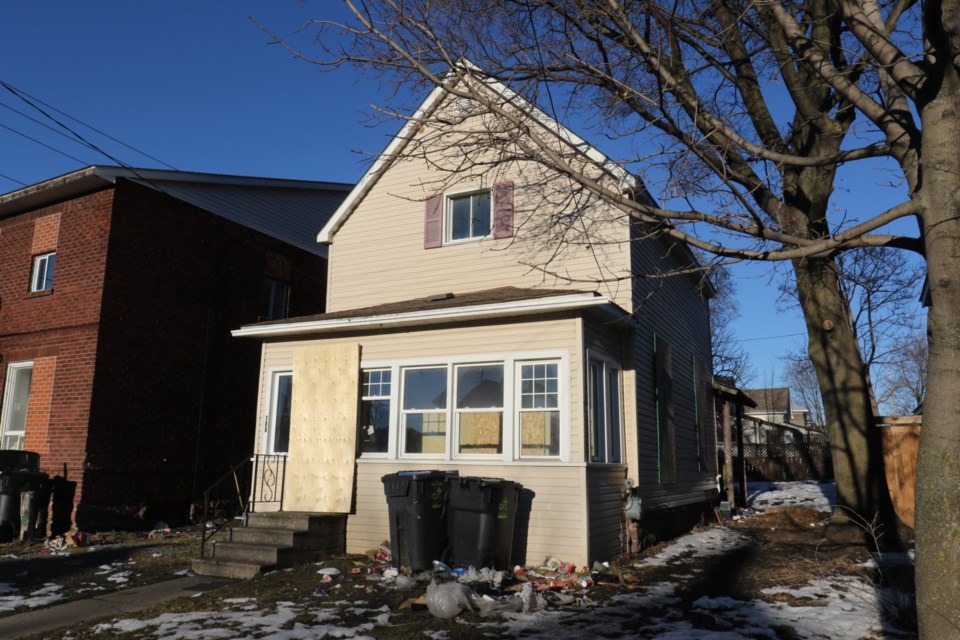It came as no real surprise to Mayor Matthew Shoemaker that a group of out-of-town shell corporations that own 150 properties in Sault Ste. Marie has filed for bankruptcy protection.
The landlords behind 11 insolvent corporations — Aruba Butt, Ryan Molony and Dylan Suitor — filed for protection from creditors in the Ontario Superior Court of Justice last week, claiming they owe more than $144 million in unpaid loans and have less than $100,000 in the bank.
Collectively, the group is “one of the largest holders of residential real estate in Ontario,” wrote Ontario Superior Court Justice Jessica Kimmel, owning more than 600 rental properties in housing markets across Ontario with lower average costs of living, including Timmins, Sudbury and the Sault, in addition to smaller communities including Capreol, Kirkland Lake and Val Caron.
“I think they have been an overall disaster for the community,” Shoemaker told SooToday in a telephone interview. “I think that we would be better off if their assets were ordered to be liquidated by the courts and bought up by reputable landlords who had some connection to the community, because clearly these corporate entities — these shell corporations — have no regard for the well-being of the community.”
Shoemaker acknowledged there’s not much that can be done to prevent out-of-town landlords like Butt, Molony and Suitor from coming into the community. But that doesn’t mean the City of Sault Ste. Marie has been sitting idle.
The municipality has tried to tighten up its property standards bylaws over the past two terms of council in an effort to discourage landlords from allowing their properties to become derelict — or face “significant financial penalties,” which can include the completion of remedial work by a third party that ends up getting charged to landlords on their property taxes, Shoemaker said.
“That, I think, is the clearest avenue for us to enforce against these companies — but it’s something we have to continually stay on top of in terms of our property standards bylaw,” he said. “If you aren’t constantly putting screws to these companies in terms of building maintenance, they’re just going to take every chance they can to let these properties get run down. Then you’ve got entire sections of the city with old stock of housing that’s in need of complete renewal.”
Ward 2 Coun. Luke Dufour, who has advocated in the past for stiffer penalties for landlords who refuse to maintain their properties at city council, told SooToday the insolvent out-of-town landlords in the Sault is a symptom of the regulatory framework being “gamed” by “bad actors.”
“I would really love to see folks at the federal and provincial level take a closer look at how things can be strengthened, everything from the tax sale process to corporate shield legislation,” he said Thursday. “When it comes to housing, there’s a different level of public good that needs to be protected, and it’s different than just your typical corporations conducting another type of business.”
Dufour is concerned that the wave of out-of-town landlords swooping in to buy up dozens of properties in the Sault over the past few years has taken away from the local economy while contributing to the erosion of affordable housing in the city.
“All that money is gone from Sault Ste. Marie now. The banks don’t even have it, right? And it’s a pretty significant chunk of money,” he said. “If those same renters had been either living in some of those historical, more affordable units — or in affordable community housing units — all of that money would still be circulating in Sault Ste. Marie.”
Dufour pointed to a recent study from the Association of Municipalities of Ontario and the Canadian Housing and Renewal Association which suggests boosting Canada’s community housing stock would lead to gains in economic productivity overall.
“That’s why this issue is so important for us to follow and recognize — and hopefully, make some changes,” Dufour said.
The corporations directed by Butt, Molony and Suitor have received protection from hundreds of lenders until the end of March 2024, according to a court decision by Justice Kimmel this week.
